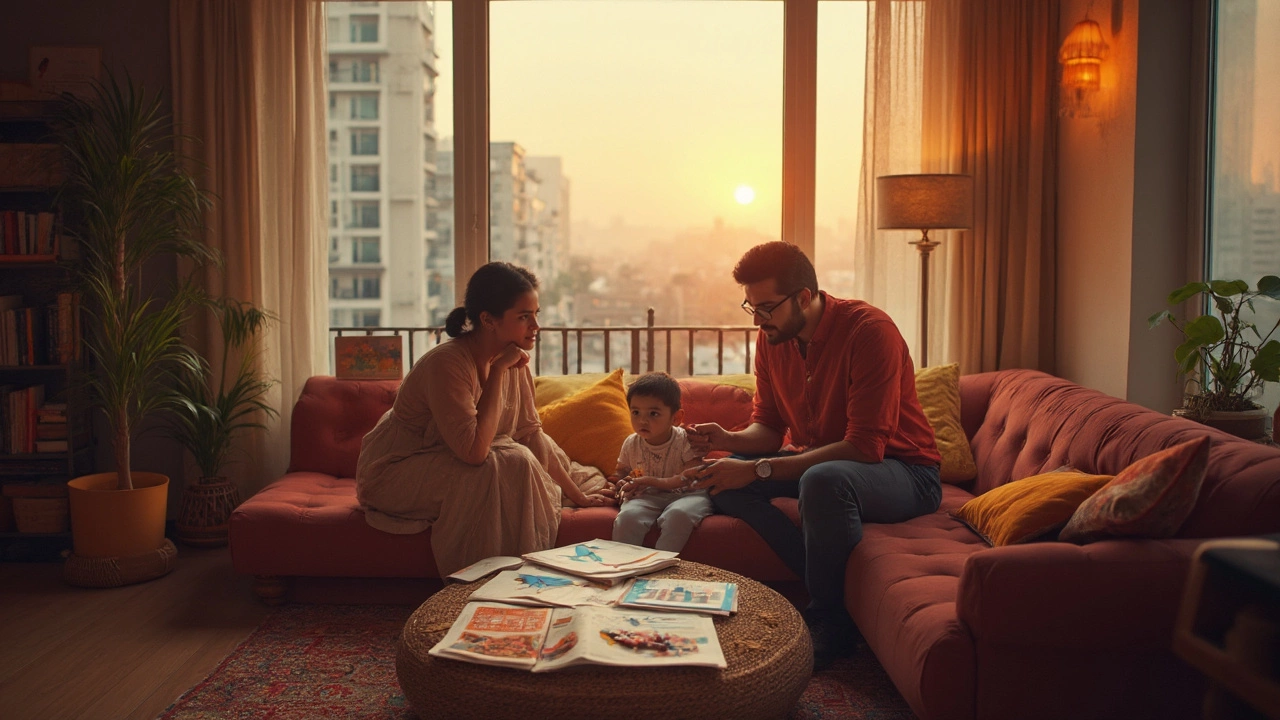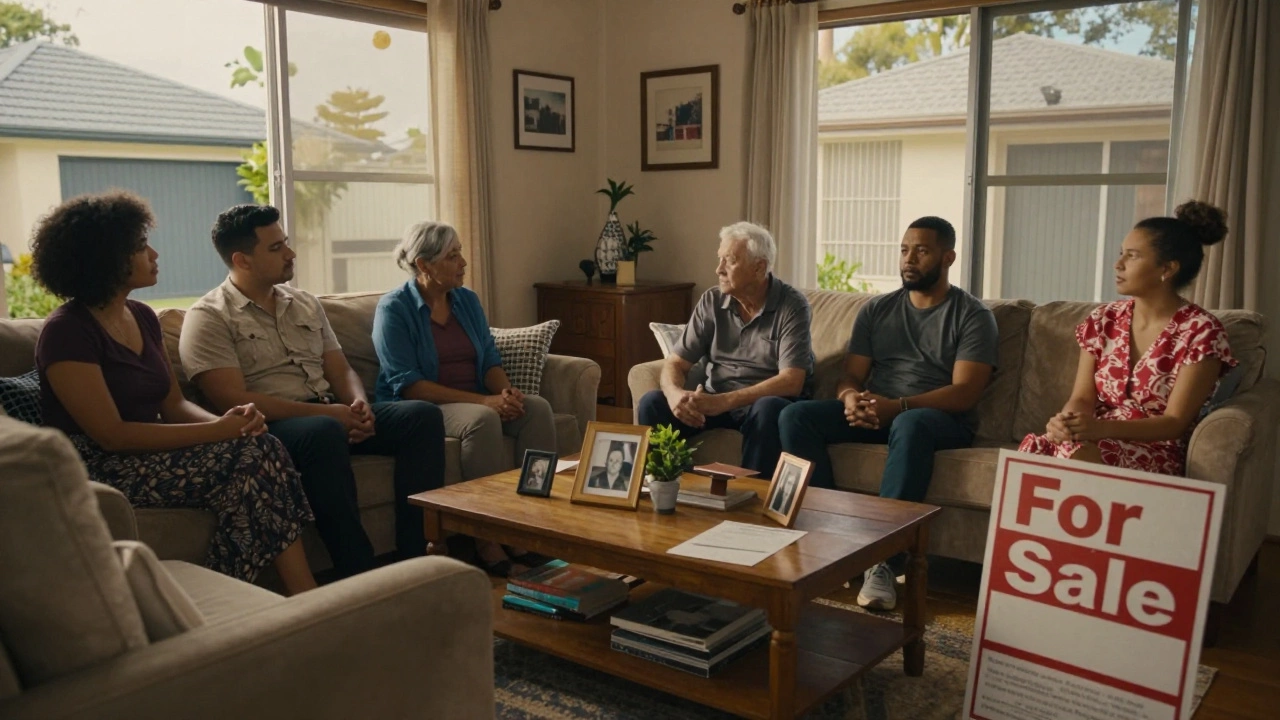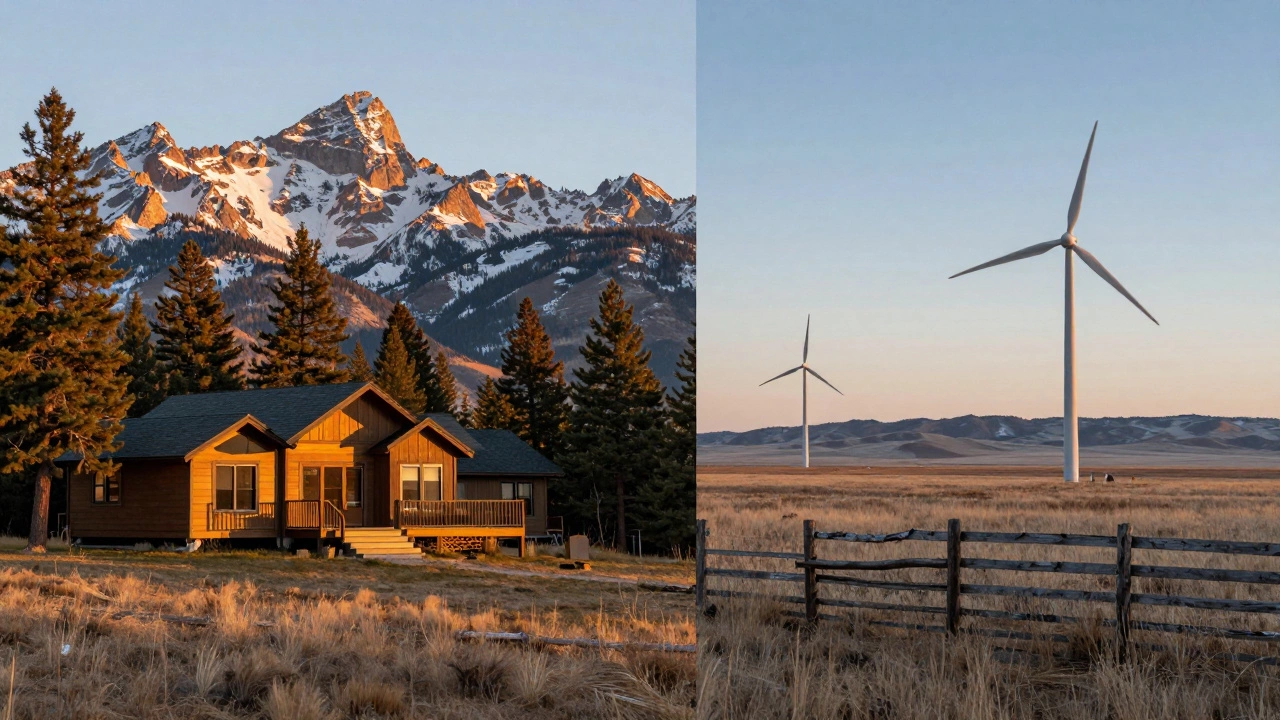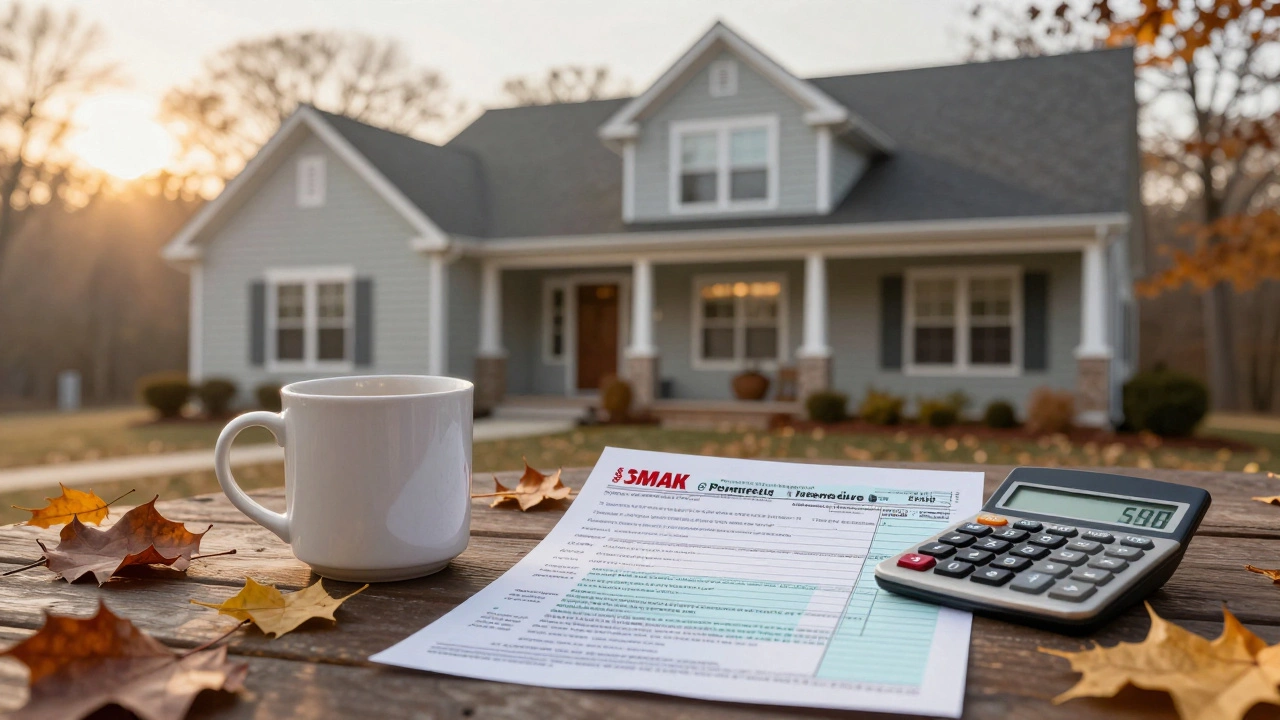Stuck between paying rent or buying your own place? You're not alone. This choice hits hard, especially with property prices and rents both climbing fast. It’s easy to feel lost in the hype—everyone knows someone who regrets not buying sooner or wishes they’d stayed a renter. But what actually works for you?
First, there’s more to this than just your monthly payment. When you buy, you deal with a down payment, extra charges like registration and stamp duty, home loan interest, and sometimes expensive online property fees. Renters skip most of this, tossing a deposit and monthly rent, and that’s about it. But their money doesn’t build any ownership over time.
Flexibility plays a huge role too. Renting lets you move jobs or cities without the headache of selling a house. Buying ties you down, but it also comes with stability that can help you plan your family or career. Think about where you see yourself in five years—are you ready to settle, or do you want the freedom to switch things up?
- Cost Breakdown: Renting vs. Buying
- Why Flexibility Matters
- Buying Online: What You Need to Know
- Making the Call: Key Questions to Ask Yourself
Cost Breakdown: Renting vs. Buying
Most folks think choosing between renting and buying is about paying monthly EMIs versus rent, but there’s a lot more to it. The price tag on a home looks simple at first, but when you break it down, owning a home comes with some serious extra costs and commitments.
Let’s zoom in on the key money factors:
- Down Payment: Buying a house online or offline usually needs at least 10-20% of the property price up front. If you’re eyeing a ₹60 lakh flat, that’s at least ₹6-12 lakh straight away.
- Loan EMI: Home loan EMIs can eat up a chunk of your salary every month. With a 20-year loan at around 9% interest for ₹50 lakh, that’s roughly ₹45,000 per month.
- Other Charges: Stamp duty, registration, and broker or legal fees can add 7-10% to the sale price. Not small change, especially when buying property online where some portals charge extra convenience fees.
- Maintenance: Homeowners pay for repairs, society maintenance, and often property tax. Renters usually avoid most of these or just pay nominal society fees.
- Rent Deposit: Renters need to hand over a security deposit—often 1-3 months’ rent upfront. It’s refunded, but that’s money parked and not earning you anything.
Want to see how this stacks up? Check out this sample comparison. (Big cities, 2BHK apartment, May 2025 rates):
| Expense | Renting (per year) | Buying (per year) |
|---|---|---|
| Monthly payment | ₹35,000 x 12 = ₹4,20,000 | EMI: ₹45,000 x 12 = ₹5,40,000 |
| Upfront costs | Deposit: ₹1,05,000 | Down payment: ₹10,00,000 Registration etc.: ₹5,00,000 |
| Annual Maintenance/Tax | ₹24,000 | ₹36,000 |
| Total (Year 1) | ₹5,49,000 | ₹15,76,000 |
Yes, you read that right—your first year as a homeowner will probably cost at least double, mostly because of upfront payments. Renters have less to cough up, but there’s no building of assets or equity.
Another tip: If you’re switching cities often, paying all these costs only to sell or leave in a couple of years rarely makes sense. But if you plan to stay put for 7-10 years, buying starts to look better, because you’re slowly owning your place and rents usually go up every year.
The biggest thing to remember: Compare rent vs buy costs side-by-side using your own salary, down payment savings, interest rate, and how long you plan to stay. Online calculators make this super easy now, and the numbers might surprise you.
Why Flexibility Matters
Life doesn’t always go as planned. That’s where renting stands out. Renting a home means you can pack up and leave with just a month’s notice—no dealing with real estate agents, waiting for buyers, or worrying about property prices crashing. If your job suddenly shifts to a new city or you want to try living closer to family, you have options and less stress.
Consider this: people in India who rent move every three to four years on average, according to 2023 data from Knight Frank. That kind of movement would be nearly impossible (and expensive) for most homeowners forced to go through buying and selling every few years. Plus, lease terms are getting more flexible, with “no-lock-in” periods becoming popular in major metro cities.
Here’s another angle—if you’re not sure about your career path or you like the idea of traveling for months at a stretch, renting keeps things easy. You won’t be stuck paying a mortgage for a place that might sit empty or worry about finding tenants to cover the payments while you're gone.
There's also less commitment to repairs, maintenance, or upgrades. When the fridge bursts or the bathroom leaks, you just ring the landlord. With home ownership, all these costs (and headaches) land on you, often when you least expect it.
Greg McBride, Chief Financial Analyst at Bankrate, puts it nicely:
"Renting gives people the freedom to pursue job opportunities, life changes, or new experiences without being tied down to a property or a massive loan."
On the flip side, buying a home can mean losing this flexibility. Selling property isn’t quick or stress-free—on average, selling a house can take 3-6 months, sometimes more if the market is slow. So, factor in your lifestyle, work plans, and how much you value the freedom to act fast. Sometimes, flexibility is worth more than anything else.
If you’re exploring rent vs buy, be honest about how much you like or need this freedom. It’ll save you a lot of trouble down the road.
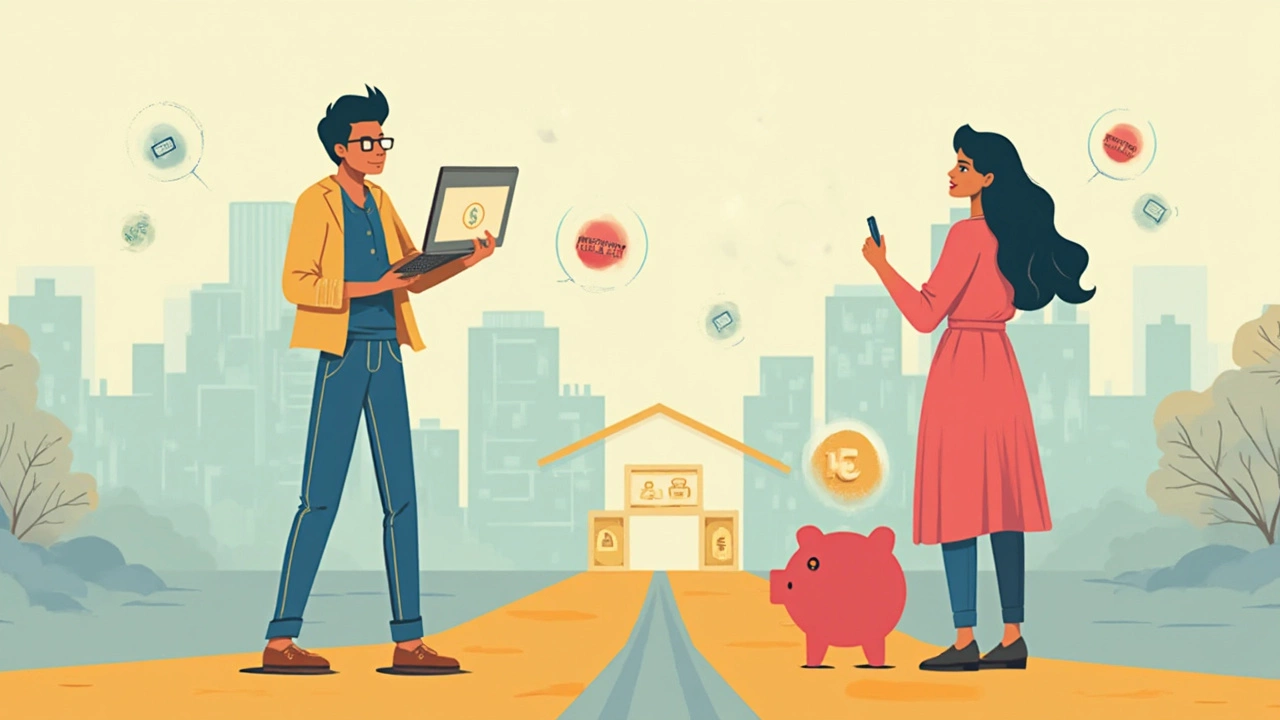
Buying Online: What You Need to Know
Buying a home online is easier than ever, but it’s not something to rush into. Today, you can scroll through listings, compare loan offers, and even sign documents all from your phone. But there’s a lot going on behind the scenes that you don’t want to miss.
For starters, legit online platforms make it simple to filter homes by budget, location, or amenities. You get access to current photos, 3D tours, and price trends, saving you loads of time on site visits. But don’t get fooled—pictures can hide things, and you still need to verify every detail.
Here’s a quick look at what really matters when shopping for property online:
- Always check if the listing comes from a trusted seller or agency. Stick with platforms that show proper legal paperwork.
- Read reviews from other buyers. Good platforms are flooded with feedback—if you don’t see much, that’s a red flag.
- Get a property report. This should show title history, legal status, and any loans tied to the home.
- Don’t just trust photos and digital tours. Book a physical visit before you seal the deal.
- If you decide to buy, make all payments through secure, traceable channels. No shady wire transfers.
The best part? When you buy property online, you can often compare several loans, perks, and builder discounts without a broker breathing down your neck.
Check out these recent numbers that show how buying homes is shifting online in India (for example):
| Year | % of property purchases done online | Average days to complete paperwork |
|---|---|---|
| 2022 | 18% | 34 |
| 2023 | 26% | 29 |
| 2024 | 34% | 24 |
So the numbers are rising every year, and the time to close deals is dropping, mostly because of digital verification and faster loan approvals. Still, double-check every document yourself. Title frauds and hidden charges are common traps for first-time buyers. As a last tip, always consult a local lawyer to review everything, even if the platform says they’ve got your back.
Making the Call: Key Questions to Ask Yourself
There’s no plug-and-play answer here because the smart move depends on your own life. Before you decide to rent or buy, ask yourself a few tough questions. This isn’t just about what your bank balance says. It’s about stability, flexibility, risk, and—let’s be honest—your tolerance for potential headaches.
Start with your finances. Do you have enough for a solid down payment plus the extra hidden costs? For most Indian cities in 2025, banks still want about 20% down. Let’s look at a quick table with what you’d need upfront for a typical 2BHK flat:
| City | 2BHK Price (INR) | Down Payment (20%) | Other Upfront Costs |
|---|---|---|---|
| Bangalore | 80 lakh | 16 lakh | 3-5 lakh |
| Pune | 70 lakh | 14 lakh | 3-4 lakh |
| Delhi NCR | 1 crore | 20 lakh | 4-6 lakh |
Remember, those other costs include things like stamp duty, registration, society charges, and—if you’re buying property online—platform or broker fees.
Now, ask yourself:
- How long do I plan to stay in one place? If your job moves you a lot, renting keeps life smoother. The usual advice: buying makes more sense if you plan to stick around for at least 5-7 years.
- Do I want flexibility or stability? Renting lets you try new neighborhoods or cities. Buying usually ties you down.
- Am I comfortable with the maintenance hassle? Homeowners fix their own leaks, pay for repairs, and deal with the RWA. Renters call the landlord.
- What’s my backup if the market slows or rates rise? Home loan interest rates bounce between 8% and 10% these days. If the market dips, being stuck with a big EMI and slow value growth can sting.
- Can I handle surprises: job loss, health issues, or family changes? Locking your savings into a house can mean less wiggle room in emergencies.
By tackling these questions head-on, you avoid flashy trends and make a move that actually fits your life. If you’re buying property online, double-check legitimacy—fake listings and fuzzy paperwork still happen in 2025. Go with sites that offer buyer protection and clear title verification. Remember, your decision isn’t for society or social media—it’s about your daily peace of mind and your future plans. The right answer isn’t always the same for everyone, and that’s totally okay.
